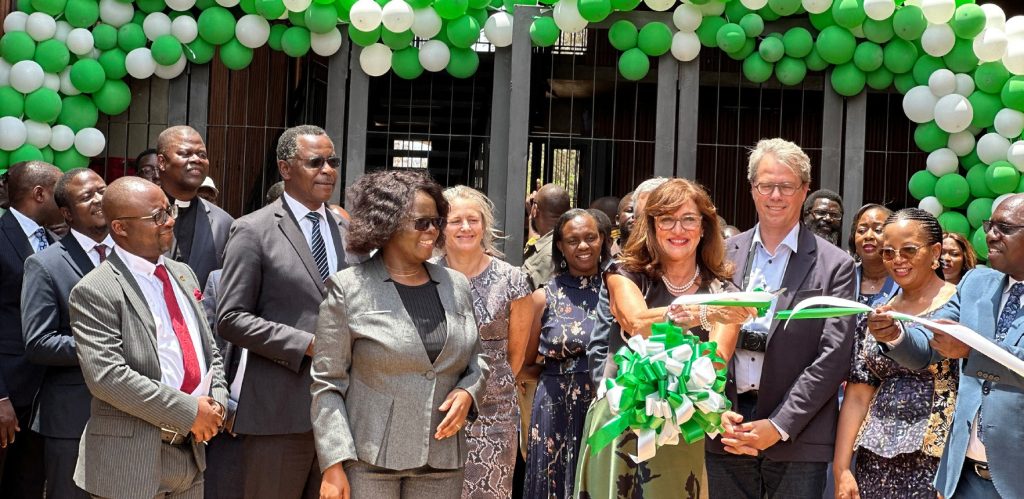Farmers urged to take soil health seriously
Agriculture experts have said investing in fertilisers alone without knowing soil health cannot help the country deal with food insecurity.
Speaking during the handover of Global Action Agricultural Transformation Centre to Lilongwe University of Agriculture and Natural Resources (Luanar), Global Action to End Smoking-Agricultural Transformation Initiative vice-president and country director Candida Nakhumwa said over the years, there has been heavy investment in fertilisers, but little yields.

She said lack of soil health knowledge stands in the way of the country’s food sufficiency goals.
Nakhumwa said the centre, which is valued at $3 million (about K5.1 billion), will among others test soil fertility and fertiliser efficacy for recommendations to smallholder and commercial farmers in the country.
Said Nakhumwa: “Malawi’s soils are sick. Soil analysis is key as it forms the basis of farming. Sometimes farmers go out to shop without knowing the type of soil they are supposed to apply. Through this centre, farmers will have access to such services.”
On his part, Centre for Agricultural Transformation (CAT) executive director Macleod Nkhoma said there is need for farmers to take soil fertility issues seriously.
He said his organisation has for the past years been assisting farmers in making informed choices through knowledge of soil health and the centre is a step forward in enhancing agricultural productivity and improving the livelihoods of Malawi’s smallholder farmers.
Said Nkhoma: “In Malawi our soils have been depleted so no matter how much fertiliser we apply, impact is not seen. We have ensured that we train our farmers on how they can amend the soil.
“The focus of CAT is that beyond diversification, we should improve on food security. We have reached out to over 800 000 farmers.”
Meanwhile, Luanar Vice-Chancellor Professor Emmanuel Kaunda has said the institution aims to contribute to the improved efficiency and profitability of fertiliser use by reaching out to farmers at a lower cost.
He observed that the centre will be critical in making agricultural businesses profitable for smallholder farmers by providing precise nutrient recommendations for their soils, adding that it will also offer hands-on training to students and enhance partnerships with government and the private sector to promote soil health and advance agricultural innovation.
Despite efforts by government in investing in fertilisers through the Affordable Inputs Programme and its predecessor Farm Input Subsidy Programme since 2005, agriculture in Malawi continues to be marked by low productivity.
This is due to several reasons, including high soil degradation, poor land management, detrimental farming practices and use of low quantities and quality of fertilisers.
This year, Malawi sits on a deficit of 600 000 metric tonnes despite heavy investment in subsidised fertiliser and mega farms.





